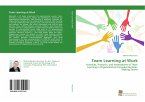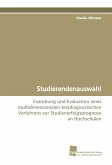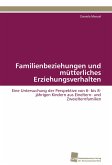With increasing globalization of the world, more and more German and Chinese students are studying abroad. Cross-cultural living is full of challenges. Aiming to support the process of cross-cultural adjustment, this study looks closely at the cross-cultural living of German and Chinese exchange students, examines cultural differences between Germany and China, and develops a complete understanding of the impact of cultural environment, situational contexts, and individual behaviors on the process of cross-cultural communication. Built upon a psychological model of cross-cultural adjustment and the examination of the specific problems and needs of the German and Chinese exchange students, the study provides a target group-oriented intercultural training program dealing with knowledge and learning, motivation, and behavioral features to improve the cross-cultural communication and the effective coping with adjustment difficulties of the exchange students.
Bitte wählen Sie Ihr Anliegen aus.
Rechnungen
Retourenschein anfordern
Bestellstatus
Storno








